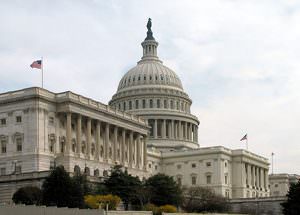Obama and the Supreme Court Just Made it Easier for the FBI to Hack Your Computer
Government agents can now use warrants obtained from a single judge to hack computers in multiple jurisdictions rather than having to get a warrant for each jurisdiction.
Craig Forrester / CC BY-SA 2.0
With support from President Obama, the Supreme Court has given the FBI the power to use warrants obtained from a single judge to hack computers in multiple jurisdictions rather than having to get a warrant for each jurisdiction.
Sen. Ron Wyden (D-Ore.) tried to kill or delay the rule in Congress but failed. In a speech on the Senate floor Wednesday, he warned that Donald Trump, who will inherit the new power, has “openly said he wants the power to hack his political opponents the same way Russia does.”
AJ Vicens reports at Mother Jones:
The changes were approved by the US Supreme Court in a private vote at the end of April, after several years of discussion within the federal judiciary. They were never debated by Congress. [Barack Obama’s] US Department of Justice says the news [sic] rules are necessary, particularly in cases where criminals use anonymizing software to conceal their location while committing crimes such as peddling child pornography. Another concern is the weaponizing of hundreds of thousands of internet-connected devices into “botnets” that are then used to flood websites with traffic to shut them down, or for criminal activities that, in the words of Assistant Attorney General Leslie Caldwell, “siphon wealth and invade privacy on a massive scale.”
Wyden isn’t convinced that the changes are urgent. Along with Sens. Chris Coons (D-Del.) and Steve Daines (R-Mont.), he tried on Wednesday to get the Senate to approve legislation that would have either blocked or delayed the implementation of the new powers.
What particularly should civil liberties advocates be worried about?
… In June, tech writer Mike Masnick noted that the DOJ’s justification for the rule change “skirt[ed] the truth, at best.” The new rule, Masnick wrote, “effectively wipe[s] out the requirement to give a copy of the warrant to the person whose computers are being hacked,” which “pretty much guarantees that some of the people who are hacked following this won’t even know about it.” He suggested that the DOJ’s use of the threat of child exploitation as a way to legitimize the rule change in effect derailed the necessary review of serious modifications to the government’s powers that should be debated and approved by Congress. “The FBI has a rather long history of abusing its surveillance powers, and especially seeking to avoid strict oversight,” Masnick wrote. “Approving such a change just because the DOJ is insisting it’s ‘FOR THE CHILDREN, WON’T YOU PLEASE THINK OF THE CHILDREN!’ isn’t a particularly good reason.”
That’s probably why big tech companies like Google and a host of civil rights organizations have opposed the change for years.
“Google has a significant interest in protecting its users and securing its infrastructure,” wrote Richard Salgado, Google’s director of law enforcement and information security, in a February 2015 letter submitted to the Judicial Advisory Committee on Criminal Rules. “The proposed amendment substantively expands the government’s current authority under Rule 41 and raises a number of monumental and highly complex constitutional, legal, and geopolitical concerns.”
—Posted by Alexander Reed Kelly
Independent journalism is under threat and overshadowed by heavily funded mainstream media.
You can help level the playing field. Become a member.
Your tax-deductible contribution keeps us digging beneath the headlines to give you thought-provoking, investigative reporting and analysis that unearths what's really happening- without compromise.
Give today to support our courageous, independent journalists.






You need to be a supporter to comment.
There are currently no responses to this article.
Be the first to respond.